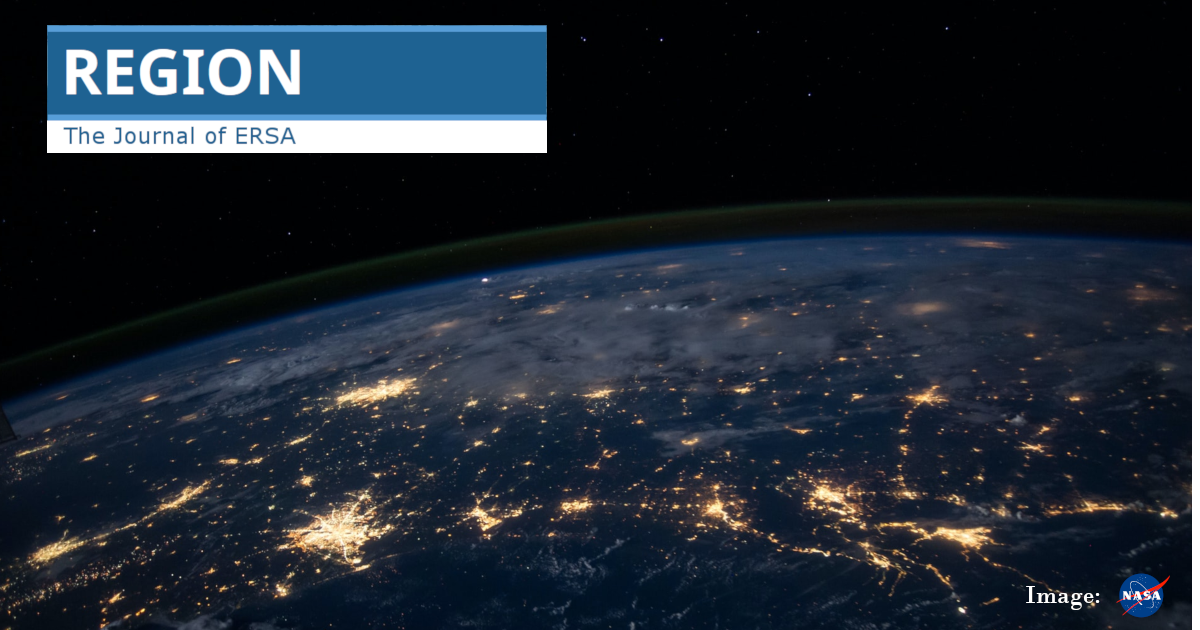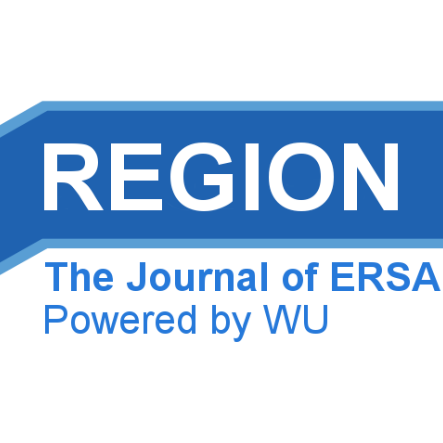Investment in digital infrastructure: Why and for whom?
DOI:
https://doi.org/10.18335/region.v9i1.415Abstract
This study investigates the variation in attitudes across stakeholders towards investments in the digital economy. Using semi-structured interviews to identify attitudes about the spatially evolving socioeconomic importance of the digital economy in New Zealand, we identified seven distinct yet partially overlapping concerns that prioritise preferences for digital investment. A key finding is that there are important asymmetries in stakeholders' narratives and epistemological foundations that currently align to collectively strengthen resolve to invest in digital infrastructure and training, but this alignment may splinter in future. Some stakeholders saw internet access as coalescing social economy, and there were concerns that some people and some places would get left behind if access is not rolled out uniformly and as a priority. There were disagreements about who will prosper, who will get left behind, who should pay for upgrading digital skills, the extent that investments were connected with wellbeing and identity, whether fake news was significant, and the longevity of the impact of digital economy investments. This study contributes to theory by demonstrating that practically-relevant, socially-informed policy decisions can be underpinned by collective efforts that draw on heterogeneous narratives and multidimensional understandings.

Downloads
Published
How to Cite
Issue
Section
License
Copyright (c) 2022 Don J. Webber, Ellen Hughes, Gail Pacheco, Glenn Parry

This work is licensed under a Creative Commons Attribution 4.0 International License.
REGION is an open journal, and uses the standard Creative Commons license: Copyright We want authors to retain the maximum control over their work consistent with the first goal. For this reason, authors who publish in REGION will release their articles under the Creative Commons Attribution license. This license allows anyone to copy and distribute the article provided that appropriate attribution is given to REGION and the authors. For details of the rights authors grant users of their work, see the "human-readable summary" of the license, with a link to the full license. (Note that "you" refers to a user, not an author, in the summary.) Upon submission, the authors agree that the following three items are true: 1) The manuscript named above: a) represents valid work and neither it nor any other that I have written with substantially similar content has been published before in any form except as a preprint, b) is not concurrently submitted to another publication, and c) does not infringe anyone’s copyright. The Author(s) holds ERSA, WU, REGION, and the Editors of REGION harmless against all copyright claims. d) I have, or a coauthor has, had sufficient access to the data to verify the manuscript’s scientific integrity. 2) If asked, I will provide or fully cooperate in providing the data on which the manuscript is based so the editors or their assignees can examine it (where possible) 3) For papers with more than one author, I as the submitter have the permission of the coauthors to submit this work, and all authors agree that the corresponding author will be the main correspondent with the editorial office, and review the edited manuscript and proof. If there is only one author, I will be the corresponding author and agree to handle these responsibilities.




